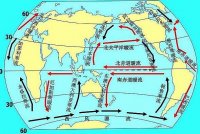1. sea和ocean是什么意思翻译
在很多词典里,Ocean和Sea都被译作为海洋,但是这两个词的意思还是有区别的。
先看看这两个词的英语释义:
Ocean: 1. The entire body of salt water that covers more than 70 percent of the earth's surface.覆盖地球表面70%以上的整个咸水水体。
2. Abbr. Oc. or O. Any of the principal divisions of the ocean, including the Atlantic, Pacific, Indian, Arctic, and Southern Oceans.海洋的主要部分,包括大西洋、太平洋、印度洋、北冰洋和南大洋(南冰洋)。
Sea: 1. a huge body of salt water that covers much of the earth. 覆盖大片地球表面的咸水水体。
a body of salt water of second rank more or less landlocked. 多少有点被陆地环绕的二级咸水水体。
比如地中海、北海等。
2. sea和ocean什么区别
区别就是两者意思是不一样具体的不同如下
ocean中文意思是<美>海洋,大海(the ocean);(五大洋之一的)洋;<非正式>许多,大量(an ocean of/oceans of)
sea中文意思是海洋;内海;海(指月球或火星表面的一片广阔平原);海面情况,海浪状况;大量,茫茫一片;(用于海名)海(Sea);巨浪(seas)
3. sea与ocean的主要区别
lake是指静水的湖泊,英文解释为:Alakeisalargeareaoffreshwater,surroundedbyland.而river是指流动的河流,是动态的河流,英文解释为:Ariverisalargeamountoffreshwaterflowingcontinuouslyinalonglineacrosstheland所以lake和river的主要区别就在于,是否是静水,是否被陆地基本包围,是就是lake,否就是river
4. sea跟ocean的区别
有区别"oceans"与"sea"都指海洋,但是它们之间的区别是:指"oceans"时,是指广阔的、分隔为不同区域的五大洋(太平洋、大西洋、印度洋、南极洲洲际洋、北冰洋),有着深度和宽度等方面的明显特点;而"sea"则通常用来指更小的海洋体系,如地中海或者加勒比海等此外,在日常用语中,“sea”往往包含“ocean”的意思,表示广泛的海洋,而“ocean”则很少用于称呼一个具体的区域性海洋
5. sea和ocean 有什么区别
区别就是两者意思是不一样具体的不同如下
sea中文意思是n.
海,海洋;内海,大淡水湖;海浪,大浪,波涛;茫茫一片;航海生活,海员生涯;海域;海面情况;海浪状况;大量;〈天〉海(指月球、火星等表面的阴暗区);
adj
海的,海上的;航海的,适于海上航行的;船只的;海员的;船上装备的;海军的;海生的;居住在海滨的,靠近海的;(风等)来自海上的,发生在海上的;以海洋为活动范围的;以海洋为主题(或创作对象)的;
例句
We left port and headed for the open sea.
我们离开港口,向外海驶去。
ocean中文意思是n.
大海;海洋;(五大洋之一的)洋;
例句
The plane hit the ocean several miles offshore.
飞机在距离海岸数英里处坠入大海。
6. seas and oceans是什么意思?
Sea pollution
Between 75 and 80% of marine pollution is caused by land, particularly agriculture. 30% of this is from the atmosphere. Around 12% of the pollution is caused by maritime transport.
In South America, 98% of domestic wastewater ends up, untreated, in the sea. The countries along the Mediterranean Sea throw 50 million tons of waste into it every year and the Chinese throw 60 million tons of waste into the Yellow sea daily. Over half of the hydrocarbon discharge comes from continents, 5% comes from oil tanker accidents, 20% comes from waste and other ship-related accidents, 4% from sea exploitation and 11 to 15% is due to natural causes. Accidental pollution through hydrocarbon is significantly decreasing and only represents a small percentage of waste through degassing estimated at between 1.5 and 3 million tons of oil a year. In 2003, according to the WWF, between 0.7 and 1.3 million tons of oil were spread by degassing in the Mediterranean. According to the Ifremer (the French Institute for Exploitation of the Sea), coastal water pollution cost the world economy almost 12.8 billion dollars in 2006.
Marine pollution is the result of products being thrown into seas and oceans, mostly by mnkind: domestic waste (sewage and rubbish, pollutants in runoff water...), industrial waste (hydrocarbons, metals, synthetic chemical and organic substances, radionuclides...) and agricultural waste (fertilisers, pesticides...).
This includes water pollution and marine sediments, and more generally all damage to marine ecosystems caused by harmful substances being discharged into the sea, either by their nature or their quantity
7. 英语sea和ocean的区别
1、意思不同:
“ocean”的意思是大洋
“sea”的意思是海、海洋
2、位置不同:
“ocean”是远离大陆的海域
“sea”则指靠近陆地的海域
3、范围不同:
“ocean”特指某一部分海洋的地理范围,地球上只有五个大洋
“sea”的包容性更广,既可以指所有的海洋范围,也可以指某一个特定区域
8. ocean和sea的区别
可能是说海外的意思
Ocean 是大洋的意思,地球上只有四个大洋,如 Pacific Ocean。
Sea 是海的意思。比如 South China Sea。
Ocean 比 Sea 大。和中文的洋和海的概念基本一致吧。
海和海洋的区别:
洋,是海洋的中心部分,是海洋的主体。世界大洋的总面积,约占海洋面积的89%。大洋的水深,一般在3000米以上,最深处可达1万多米。大洋离陆地遥远,不受陆地的影响。它的水文和盐度的变化不大。每个大洋都有自己独特的洋流和潮汐系统。大洋的水色蔚蓝,透明度很大,水中的杂质很少。世界共有4个,即太平洋、印度洋、大西洋、北冰洋。
海,在洋的边缘,是大洋的附属部分。海的面积约占海洋的11%,海的水深比较浅,平均深度从几米到二三千米。海临近大陆,受大陆、河流、气候和季节的影响,海水的温度、盐度、颜色和透明度,都受陆地影响,有明显的变化。夏季,海水变暖,冬季水温降低;有的海域,海水还要结冰。边缘海既是海洋的边缘,又是临近大陆前沿;这类海与大洋联系广泛,一般由一群海岛把它与大洋分开。地中海是几个大陆之间的海,水深一般比内陆海深些。世界主要的海接近50
